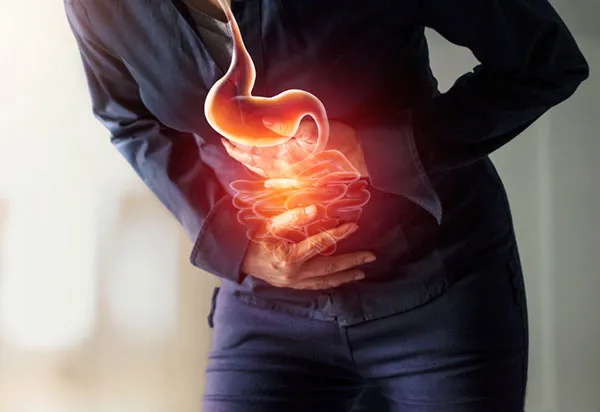A stomach lining develops inflammation known as gastritis thus affecting digestion and overall health. Failing to address untreated gastritis results in different digestive problems because it presents either as short-term acute or long-term chronic. Knowledge about gastritis combined with an understanding of its effects on digestion gives patients essential tools to handle symptoms along with stopping potential complications.
What is Gastritis?
The stomach lining develops inflammation known as gastritis because of diverse causes such as infections and prolonged medication use and dietary preferences. The inflamed condition of gastritis causes damage to the protective stomach lining thus creating pain alongside gastrointestinal problems. There are two main types:
Acute Gastritis develops quickly and emerges from infections and heavy alcohol use combined with medications or substances.
People with chronic gastritis usually show persistent inflammation that develops from recurrent bacterial infections as well as autoimmune diseases or prolonged contact with damaging substances.
How Gastritis Affects Digestion
According to verified gastroenterologists food breakdown begins in the stomach where gastric juices perform their breakdown work. The digestive process becomes disrupted due to gastritis through multiple means:
- The harm to stomach lining together with inflammation creates obstacles for proper digestion while causing ongoing stomach discomfort.
- Gastritis modifies the production level of stomach acid which results either in higher amounts or lower amounts that causes malabsorption while creating bloating symptoms.
- Gastric acid sensitivity rises in stomach tissue that has become inflamed because it develops an enhanced reaction to acid which produces heartburn and nausea and stomach pain along with other symptoms.
- When gastritis slows digestive motion through the stomach it results in indigestion symptoms together with bloating and discomfort.
Common Symptoms of Gastritis
The symptoms of Gastritis appear with varying intensity from mild to severe forms with following indications:
- Persistent abdominal pain or discomfort
- Nausea and vomiting
- Indigestion and bloating
- Heartburn and acid reflux
- Loss of appetite and unintentional weight loss
Causes and Risk Factors
Different elements lead to the development of gastritis among patients.
- Helicobacter pylori (H. pylori) Infection functions as a typical bacterial cause which diminishes stomach lining strength allowing inflammation to develop.
- Regular consumption of NSAIDs including aspirin and ibuprofen leads to stomach lining damage.
- The combination of alcohol consumption and smoking activities leads to stomach lining damage alongside acid production increase which intensifies gastritis manifestations.
- Chronic stress as well as autoimmune diseases tend to result in stomach inflammation.
- Food intolerances along with the consumption of spicy or acidic foods or processed foods can lead to symptom intensification or creation in gastritis patients.
Diagnosis and Medical Evaluation
A medical evaluation becomes necessary when gastritis symptoms maintain their current status. Physicians will perform these assessments when diagnosing gastritis:
- Experts use endoscopy to monitor stomach inflammation through examining the stomach with a small camera while collecting tissue samples.
- H. pylori Breath Test – Detects the presence of H. pylori bacteria.
- Medical tests of the blood and stool serve to detect infections and bleeding from inside the body.
Treatment Options
Patients who have gastritis need to treat the condition through professional medical interventions combined with changes to their lifestyle habits.
- Doctors will give patients proton pump inhibitors (PPIs) and antacid medication to reduce acid production along with antibiotics when H. pylori infection exists.
- The symptoms of gastritis tend to stabilize when patients follow a fiber, lean protein and healthy fat dietary plan and avoid acid, spice and processed food groups.
- The combination of stress reduction and avoidance of NSAIDs with alcohol control and smoking cessation will stop gastritis from advancing.
Prevention Gastritis
Certain self-care practices and seeking help from a gastroenterologist in Karachi are vital to prevent the occurrence of gastritis as well as preserving digestive system health.
- Following healthy eating practices requires individuals to consume little food many times a day and to stay away from caffeine and acidic food substances.
- People should restrict their intake of alcohol and painkillers since these substances result in stomach lining damage.
- Individuals should use meditation along with exercise as stress management tools to protect their digestive health.
Conclusion
Gastritis produces major digestive effects through its disruption of stomach operations together with uncomfortable symptoms. Successful prevention of complications in gastritis requires timely identification of symptoms alongside immediate medical attention paired with modifications to diet and lifestyle modifications. Seek medical consultation when digestive symptoms do not resolve because experts will help identify proper treatment approaches for lasting digestive health.


